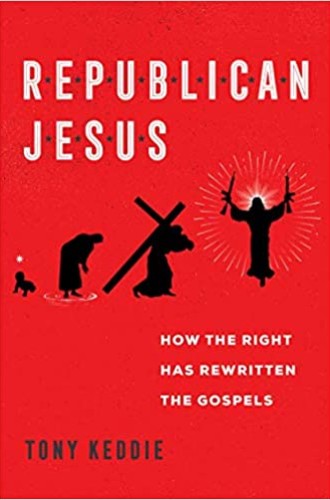Deconstructing the Republican Jesus
Biblical scholar Tony Keddie shows how the conservative movement enlisted the Bible to help its cause.
Histories of the political, social, and economic origins of the Christian right in the United States are plentiful. However, outside of a handful of books focused on debates about creationism and the Creation Museum in Kentucky, few studies have examined the movement’s use of scripture. Tony Keddie, a biblical scholar trained in the United States who now teaches in Canada, fills this gap by exploring the plausibility of some of the key scriptural interpretations Christian conservatives in the US put forth to justify their policy positions. His book aims to show how “Republican Christian influencers have created an anachronistic and internally contradictory story of Jesus tailored to address the concerns and anxieties of modern conservatives.”
Keddie does not conceal his belief that the New Testament cannot responsibly be said to sanction most Republican political positions, and he seeks to undermine the authority of any such biblical interpretations. He begins where many academic studies of the Christian right do: showing that politically conservative economic positions were developed by individuals outside the church. After these positions were formulated, movement leaders sought to ground them in Christian theology to win support from economic non-elites, mostly through various churches. Over time, “right-wing politicians and their corporate bedfellows” developed what they called “scriptural” cases for policies on taxation, corporate regulation, health care, climate change, abortion, and immigration.
This argument—that such positions were developed to serve an economic agenda and only later were packaged within scriptural language to gain a wider base of support—is shared by many historians of American conservatism. Keddie knows that this view won’t dissuade followers of the “Republican Jesus,” who claim that they are not beholden to any political party but only to the text of scripture itself.





